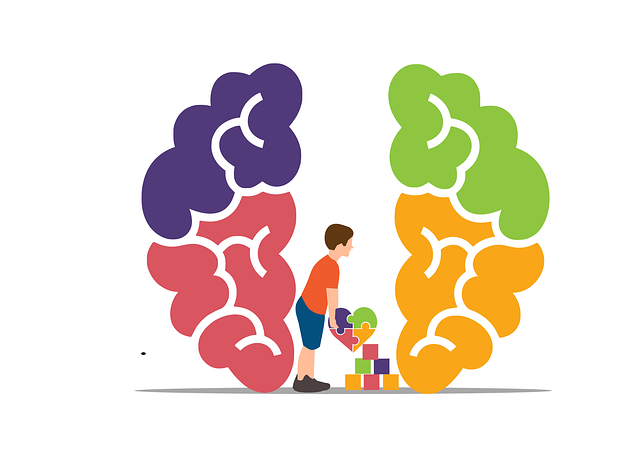Mental health professionals providing Superior Hebrew Speaking Therapy must balance client safety with effective interventions. This involves a deep understanding of cultural sensitivity, mindfulness meditation techniques, and risk management strategies to address both acute and systemic threats. By bridging cultural gaps through training and integrating compassionate practices, therapists create safe spaces tailored to diverse needs, while regularly assessing and refining their risk management plans based on practical experience and research.
Mental health professionals face unique challenges, especially when navigating complex patient populations like Hebrew-speaking communities. This article guides therapists through essential risk management planning, offering a comprehensive approach tailored to the specific needs of this demographic. We explore understanding cultural nuances, developing robust strategies, and implementing effective review processes. By adopting these practices, mental health providers can ensure superior care for Hebrew-speaking patients, fostering safe and supportive therapeutic environments.
- Understanding Risk in Mental Health Practice
- Cultural Considerations for Hebrew Speaking Populations
- Developing a Comprehensive Risk Management Plan
- Implementing and Reviewing the Plan Effectively
Understanding Risk in Mental Health Practice

In mental health practice, understanding risk goes beyond recognizing potential hazards. It involves a nuanced appreciation for the complex interplay between client vulnerability, therapeutic interventions, and societal factors. Mental health professionals must be adept at navigating this landscape to deliver superior Hebrew speaking therapy that is both effective and safe. This includes recognizing not just acute risks like self-harm or violence, but also chronic, indirect, and systemic dangers that can impact client outcomes.
A robust risk management plan for mental health professionals should incorporate elements of Mental Health Education Programs Design focused on mindfulness meditation and Cultural Sensitivity in Mental Healthcare Practice. Through ongoing education and skill development, therapists can better anticipate risks, implement preventative strategies, and respond adaptively to crises. This holistic approach ensures that clients receive the highest quality care while minimizing potential harms within the therapeutic setting.
Cultural Considerations for Hebrew Speaking Populations

In providing therapy to Hebrew-speaking populations, mental health professionals must consider the cultural nuances and languages that shape individuals’ experiences and perspectives on mental health. Many Hebrew speakers may face unique challenges in accessing quality care, especially if the healthcare provider lacks cultural competency. This is particularly important for anxiety relief and trauma support services since these issues are often deeply rooted in personal and collective histories.
Superior Hebrew-speaking therapy requires professionals to be aware of and respectful towards traditional healing practices, family dynamics, and religious beliefs within these communities. Healthcare provider cultural competency training is essential to bridge the gap between diverse populations and effective mental healthcare. By embracing this training, professionals can ensure they offer culturally sensitive services that cater to the specific needs of Hebrew-speaking individuals, fostering a safe and supportive environment for trauma support and anxiety relief.
Developing a Comprehensive Risk Management Plan

Mental health professionals, especially those offering Superior Hebrew Speaking Therapy, must develop a robust risk management plan to ensure their well-being and effectiveness in treating clients. This involves a multifaceted approach where therapists identify potential risks within their practice, whether it’s related to patient confidentiality, ethical dilemmas, or personal burnout. A comprehensive plan should include strategies for mitigating these risks and fostering a safe therapeutic environment.
One key component is integrating compassion cultivation practices into daily routines, which can enhance the therapist-client relationship while also providing anxiety relief and boosting confidence. By prioritizing self-care and incorporating techniques that promote emotional resilience, mental health professionals can better navigate challenging situations, thereby improving their ability to support clients in overcoming their own struggles with anxiety relief and building confidence.
Implementing and Reviewing the Plan Effectively

Implementing a risk management plan is only the first step; its success hinges on regular review and refinement. Mental health professionals should schedule periodic assessments to evaluate the effectiveness of their strategies, ensuring they remain up-to-date with evolving best practices. This ongoing process involves critically examining each aspect of the plan—from crisis intervention protocols to self-care routines—and making necessary adjustments based on practical experience and emerging research in Hebrew-speaking therapy.
By integrating a Mental Wellness Journaling Exercise as part of their routine, professionals can gain valuable insights into personal and professional stressors, triggers, and coping mechanisms. This reflective practice, coupled with Healthcare Provider Cultural Competency Training, enables therapists to identify potential risks more proactively, tailor interventions accordingly, and ultimately deliver superior care to their diverse clientele. Additionally, regular review sessions should focus on updating skills in Stress Management techniques to address emerging challenges in the field.
Risk management planning is an indispensable tool for mental health professionals, especially when catering to diverse populations like Hebrew-speaking communities. By understanding cultural nuances and incorporating them into a comprehensive risk assessment strategy, therapists can deliver superior Hebrew speaking therapy. Effective risk management not only protects practitioners but also ensures the well-being and satisfaction of clients, fostering a safer and more inclusive therapeutic environment. This structured approach allows professionals to navigate potential challenges, enabling them to provide high-quality care tailored to the unique needs of their Hebrew-speaking patients.














